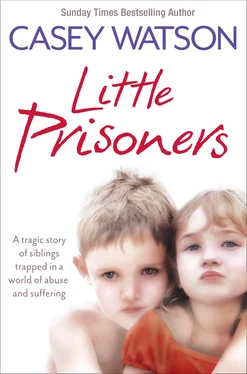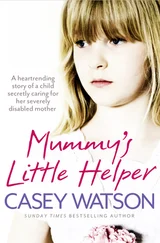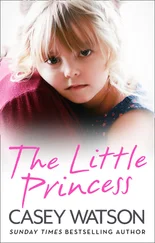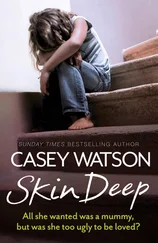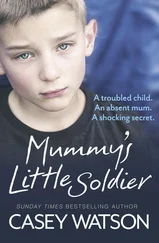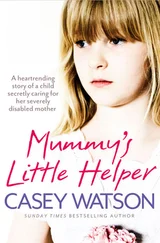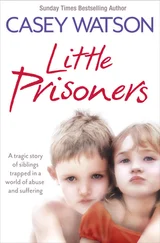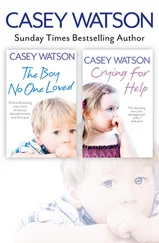We’d had some more info by now, from an extremely grateful John, who, had he been able to crawl along the phone line and hug me, would, I could tell, have probably done so. As it was, he just had to content himself with thanking me profusely and letting me know we’d have everyone’s full support. The children now had names at least; the nine-year-old boy was called Ashton, and his six-year-old sister was Olivia.
I’d get more in the afternoon, he said, when the social worker called me, but in the meantime he wanted to let me know that a new bed was already on its way. Happily, Mike, who was a warehouse manager and very busy with his own job, had taken two days off to get the rooms straight, so I could at least be sure the children would both have somewhere nice and welcoming to sleep.
By lunchtime, I was happy that we were getting things organised, so, leaving Mike and Kieron painting – they’d found a big tin of blue emulsion, left over from when we’d decorated for our first foster child, Justin – Riley and I made a trip into town for some bits. I knew it wasn’t really necessary, but the word ‘neglect’ kept jumping out at me, so even if they would be with us only a short while I was determined these poor little ones would find the experience a positive one. It would take no time at all to grab some bits from all the local charity shops: books to read, toys and jigsaws, soft toys and dolls – just some kiddie paraphernalia to help make them feel at home.
Riley and I were just staggering back in through the front door with our haul when the phone rang. As promised, it was the children’s social worker.
‘I’m Anna,’ she told me. She sounded young and very professional. ‘And I can’t tell you how grateful we are that you’ve agreed to help us out. John’s told us so much about you and Mike, and we really don’t know what we’d have done without you. And I have to tell you …’ I mentally braced, because the tone of her voice had now changed markedly, ‘… that the situation’s become somewhat more urgent.’
I wasn’t sure what she meant. In the world in which we worked we were used to pretty much everything being urgent. Well, if they needed something, anyway – it didn’t necessarily work in reverse. ‘More urgent?’
‘In that we’ve had to give the parents notice. That we’re going to be removing the children in the morning …’
‘The morning? You mean tomorrow morning?’
‘I’m afraid so,’ she answered. ‘We would have moved them today, but of course it was only fair to give you notice …’
‘But what about the pre-placement meeting? We know absolutely nothing about them.’
I should have expected this, I thought ruefully as I waited for her answer. In theory, before a child is placed with a foster family, there is a defined process – a formal meeting, in which all concerned parties are present, so that social services can give the new carers some background and so that a plan of action for the child or children’s future can be put in place. But in practice … Hmm, I thought, we’d been here before, hadn’t we?
‘I’m so sorry,’ she said, ‘to land the two of you in it like this. We will, of course, arrange an urgent meeting with you, once you have the children, then we can tell you both everything we know.’
I could almost hear her holding her breath, waiting for me to argue. But I’d committed, and these kids needed a temporary home, now.
‘Okay,’ I said.
‘Oh, thank you so, so much,’ she answered. Rather worryingly.
After a fitful night mostly spent making mental lists, the following morning found me sitting in my garden, drinking in its glorious summer scents. It was looking – and smelling – particularly gorgeous, as Kieron had cut the grass for me, and Lauren had done some weeding. It would be the perfect place, I thought, for these poor, sad little children, to run around and let off some steam.
I still knew barely anything despite speaking again to John the previous evening. He’d backtracked just a little on his original grim announcement; having found out more, he now assured me they didn’t have too many serious behavioural problems. They were just two frightened kids, who, for no fault of their own, were going to have to be taken away from their parents. I couldn’t begin to imagine the circumstances – and there were just too many potential reasons for me to try – but what John had told me (well, as far as he’d been made aware, anyway) was that they simply couldn’t cope with taking care of them.
So sad, yet, tragically, so common. I breathed deeply, my eyes taking in all the violets, pinks and yellows – and, as I made an impromptu shopping list for Mike to take to the supermarket for me, I could only wonder, and hope, that things would be addressed sufficiently that at some point those parents could have them back.
This was central to what we did – we tried to provide hope for the future. Hope that either families would be reunited or, if that wasn’t possible, that the children concerned could at least be equipped with some life skills to get them through, and then hopefully placed permanently, with carers who’d give them a fighting chance of happiness.
Bob was bounding around the lawn as I sat and philosophised, and seeing him brought a smile to my face. They’d love our dog; no-one could fail to, because he had such a lovely temperament. Kieron had sprung him on us all, out of the blue, almost two years back. He’d been languishing in a rescue centre, abandoned and unwanted. I grinned to myself. Rescuing waifs and strays seemed to be a Watson family trait.
‘You done yet?’ It was Mike, come to join me in the garden. ‘Only, if I’m going to get there and back before these little ones arrive, I’d better scoot.’ He surveyed the list I passed him with growing consternation. ‘Bloody hell, love! You sure we need all this lot? We don’t even know the kinds of foods they like yet. Wouldn’t it be better to hold off on some of this until they’ve got here?’
‘Mike, all kids like that stuff,’ I answered. ‘And don’t stress me, not today.’
He gave a mock salute. ‘As you wish, Your Majesty.’
‘And hurry,’ I chided, grinning. ‘We haven’t got all day!’
As it turned out, we had barely an hour before the car drew up outside, only moments after Mike had returned, laden with bulging supermarket carrier bags. The cupboards had been pretty bare, what with us being away, so it had been a mad rush to get everything put away. Mindful of how scared the children would be, I shooed both Kieron and Bob back out into the garden, so they could meet the whole clan in less intimidating stages – Riley and her partner David wouldn’t stop by with Levi till tomorrow, so the kids would have a chance to settle in and get to know their new temporary home first.
Mike went outside to greet them and to help them with their stuff – our last child had had about half a dozen cases – while I finished pulling cups out of the kitchen cupboards. By the time I’d returned to the hall, he was already back, however, clutching just the one small suitcase and a bin liner. The children themselves were following along behind him, with a man and a woman, the latter being Anna, I imagined.
Finally they were all gathered on the doorstep in a huddle.
At which point, I should have ushered them all immediately in, but even I – and I have seen a lot in my time – had to take a second, just to process the sight of them.
John had been wrong. The word ‘neglect’ didn’t cover it. These poor little ones looked feral. I took in filth – so much filth that it almost looked tattooed on their scraggy limbs – matted hair, almost in dreadlocks, and rags, in the main, for clothes. Their expressions were wide-eyed and terrified and hollow, and they clung to their carers like baby monkeys to a mother; even as I watched the man try to disentangle himself from the boy, I could see just how tightly the gnarled brown hands gripped on.
Читать дальше
